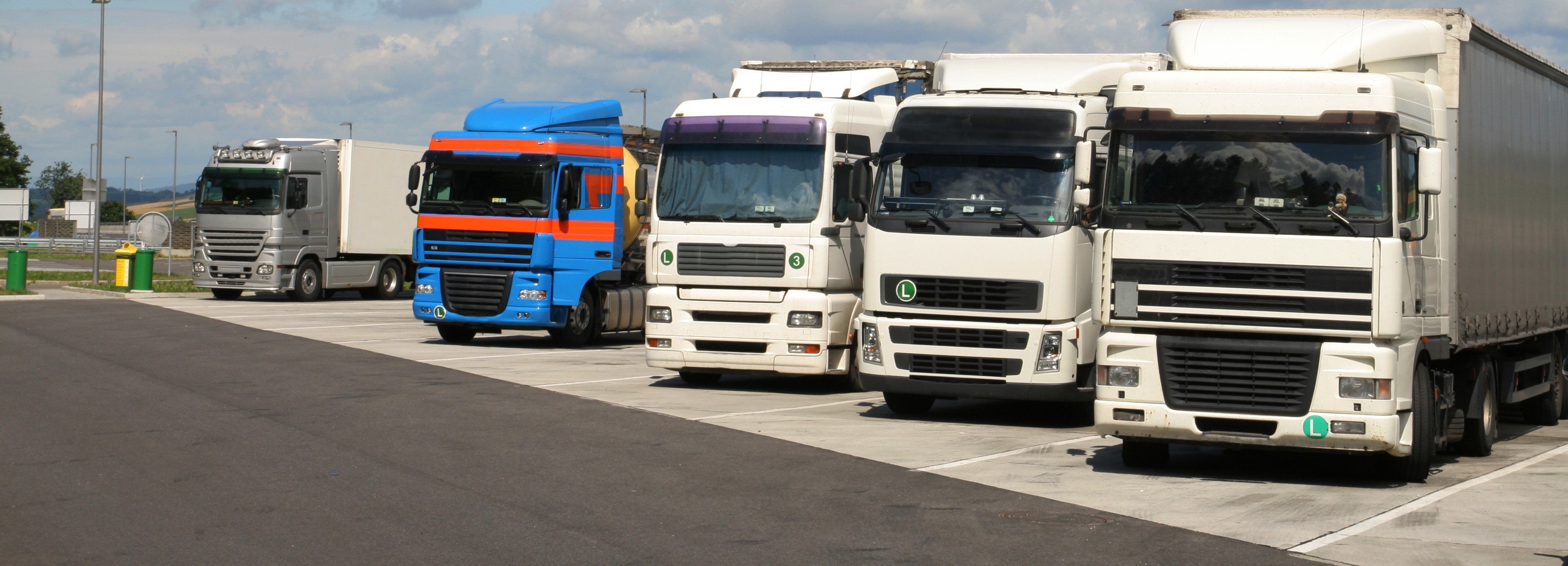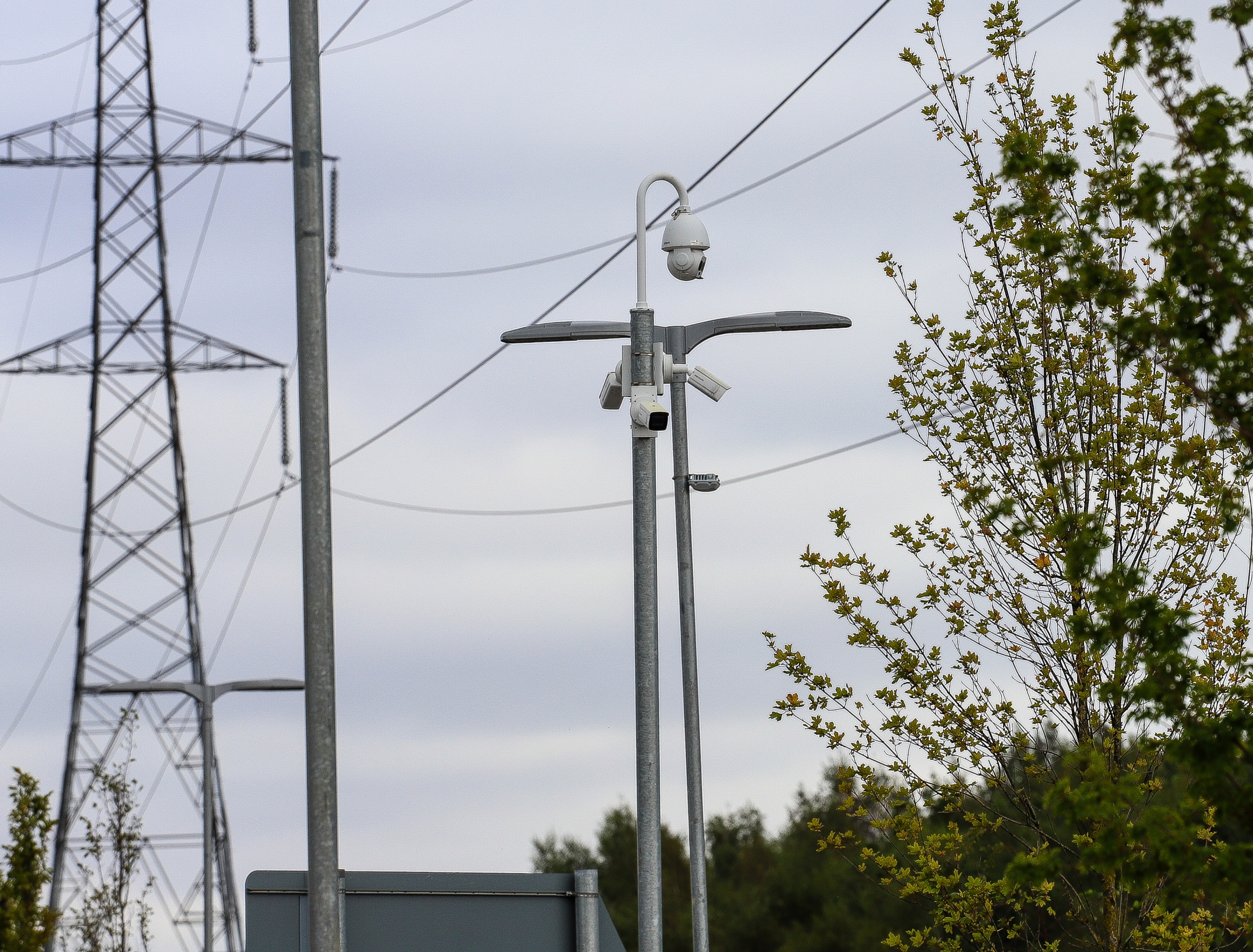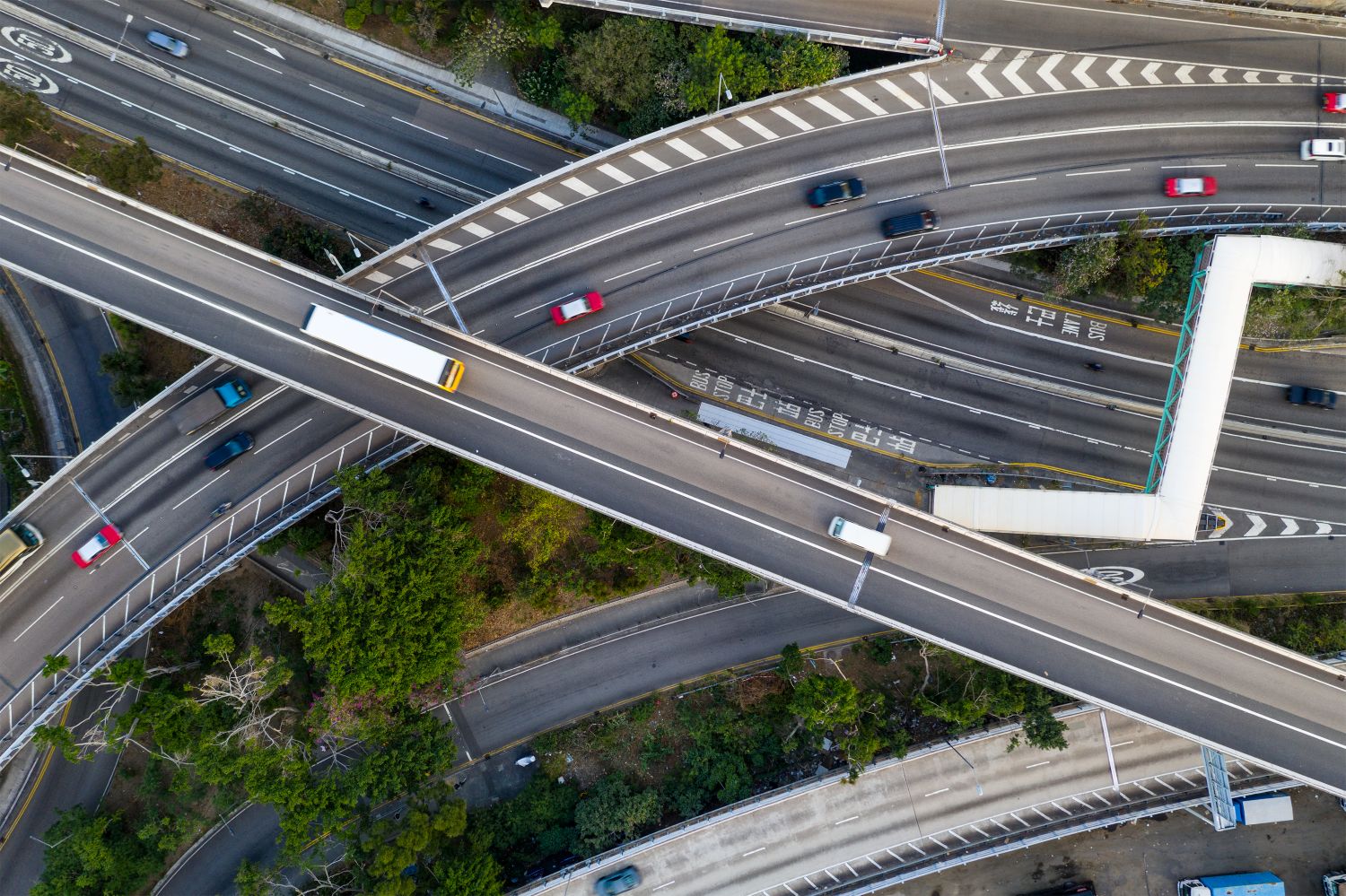
Miranda Blake
Hvad tæller som 'sikker lastbilparkering'? Chauffører taler ud
Oprettet: 09.12.2024
•
Opdateret: 09.12.2024
En af de største udfordringer for chauffører er at finde sikre parkeringsfaciliteter. [En undersøgelse foretaget af branchens vagthunde] (https://d3cez36w5wymxj.cloudfront.net/wp-content/uploads/2024/11/04184443/Lorry-Driver-Facilities-Survey.pdf) afslørede, at mange føler, at sikkerheden på rastepladserne ikke er tilfredsstillende.
Lad os dykke ned i de forskellige aspekter, der bidrager til sikker lastbilparkering set fra chaufførernes perspektiv, og udforske de vigtigste foranstaltninger og faciliteter. Derudover vil vi se på det overordnede miljø, der fremmer en følelse af beskyttelse.
Lastbilparkeringens rolle i logistikken
Lastbilchauffører har brug for at parkere for at overholde strenge regler om hvileperioder. Desuden har de brug for steder, hvor de kan hvile, tanke op og opfriske sig uden [frygt for indbrud eller hærværk] (https://snapacc.com/newsroom/tips-for-keeping-your-vehicle-secure-protecting-your-truck-from-theft/). Da ca. 81 % af godset transporteres ad landevejen, er efterspørgslen efter sikker lastbilparkering virkelig afgørende for branchens succes.
Utilstrækkelige foranstaltninger kan føre til alvorlige konsekvenser, herunder tyveri af gods, skader på køretøjer og personlige sikkerhedsproblemer. Det har fået [chaufførerne til ofte at udtrykke frustration] (https://snapacc.com/newsroom/drivers-unhappy-with-truck-stops-whats-the-problem/) - det kan afholde dem fra at holde pauser og i sidste ende påvirke deres præstationer på vejen.
Væsentlige foranstaltninger
Et grundlæggende aspekt af sikker lastbilparkering er implementeringen af fysiske barrierer. Robust indhegning er afgørende for at forhindre uautoriseret adgang. Kontrollerede ind- og udgange, som f.eks. porte, der kræver adgang med nøglekort eller kode, er en nødvendighed. Sådanne foranstaltninger reducerer sandsynligheden for indtrængen betydeligt og forbedrer den generelle sikkerhed.
Effektiv belysning er også afgørende. Godt oplyste områder modvirker kriminel aktivitet og giver chaufførerne en følelse af beskyttelse og tillid til at navigere på rastepladserne, især om natten.
Omfattende videoovervågning er et andet vigtigt aspekt. CCTV-kameraer bør dække hele parkeringsanlægget, så der er mulighed for konstant overvågning og optagelse af aktiviteter. Mange lastbilchauffører sætter pris på at vide, at deres køretøjer og last er under overvågning døgnet rundt, da det kan være en effektiv afskrækkelse for potentielle kriminelle.
Tilstedeværelsen af uddannet sikkerhedspersonale giver et ekstra lag af beskyttelse. Vagter kan reagere hurtigt på hændelser, hjælpe og opretholde en synlig tilstedeværelse, der forbedrer den generelle følelse af sikkerhed. Vognmænd er ofte mere rolige, når de ved, at der er professionelle på stedet til at håndtere eventuelle problemer, der måtte opstå.
Det er vigtigt at have lettilgængelige nødkommunikationssystemer - der bør være nødopkaldsbokse eller samtaleanlæg, så chaufførerne hurtigt kan kontakte sikkerheds- eller krisetjenester, hvis det er nødvendigt. I fjerntliggende områder, hvor øjeblikkelig hjælp måske ikke er umiddelbart tilgængelig, er denne funktion særlig vigtig.

Yderligere funktioner
Rene og velholdte toiletter og brusere er også meget værdsat, især på lange ture. Der bør træffes foranstaltninger for at sikre, at disse faciliteter er aflåste og under opsyn - det vil ikke kun øge chaufførernes komfort, men også bidrage til deres generelle følelse af sikkerhed.
Selv om det ikke er direkte relateret til sikker lastbilparkering, kan ekstra faciliteter forbedre den generelle komfort på et parkeringsområde betydeligt. Mad- og drikkevaremuligheder, WiFi-adgang og elektriske tilslutninger til køletrailere gør pladsen mere indbydende. Grundlæggende vedligeholdelsesservice kan også være en fordel, så lastbilchauffører kan løse mindre problemer uden at forlade stedet.
At skabe et bedre miljø
En sikker lastbilparkering bør også tage sig effektivt af chaufførerne. Mange fortæller, at de føler sig undervurderet på visse steder, hvilket kan påvirke deres oplevelse negativt. De steder, der behandler chaufførerne med respekt og tilbyder en venlig atmosfære, opmuntrer til gentagne besøg og skaber loyalitet.
Investering i uddannelse af personalet er afgørende for at forbedre dette. Medarbejderne skal forstå lastbilchaufførernes unikke behov og vide, hvordan de skal yde fremragende kundeservice.
Håndtering af chaufførernes bekymringer
Det er vigtigt at vide, at kvindelige chauffører, som udgør en lille procentdel af arbejdsstyrken i lastbilbranchen, ofte står over for ekstra udfordringer med hensyn til sikkerhed. Mange kvinder rapporterer, at de føler sig utrygge i miljøer, der overvejende består af mænd, især når rastepladserne ikke har tilstrækkelige sikkerhedsforanstaltninger - det er vigtigt at tage hensyn til deres specifikke behov og tage skridt til at sikre, at de er både trygge og glade.
En anden overvejelse er, at nogle lastbilchauffører har særlige kostbehov. Så ved at tilbyde sunde madmuligheder og tage hensyn til forskellige kostbehov kan man forbedre deres oplevelse og bidrage til chaufførernes positive velbefindende.
Fremtiden for sikker lastbilparkering
Innovationer som smarte overvågningssystemer, automatiseret adgangskontrol og overvågning i realtid kan forbedre foranstaltningerne betydeligt. Rastepladser, der investerer i løsninger som disse, har større chance for at tiltrække flere flåder og chauffører, der søger sikre løsninger.
At løse udfordringerne på dette område kræver samarbejde mellem forskellige interessenter, herunder offentlige myndigheder, logistikvirksomheder og operatører af parkeringsanlæg. Ved at arbejde sammen kan disse grupper udvikle omfattende strategier for at forbedre sikkerheden og hele oplevelsen for lastbilchauffører.
At arbejde for politiske ændringer, der prioriterer chaufførernes behov, er afgørende for at skabe sikrere miljøer. Brancheorganisationer og fortalergrupper kan spille en vigtig rolle i at øge bevidstheden om vigtigheden af sikker lastbilparkering og presse på for lovændringer, der støtter infrastrukturforbedringer.
Find sikre tjenester
Her hos SNAP prioriterer vi chaufførernes sikkerhed og hjælper lastbilparker med at gøre det gennem vores dedikerede Access & Security-afdeling. Fra ANPR-kameraer og -software til betalingsterminaler til barrierer til adgangssystemer til CCTV-kamerasystemer - vi installerer alt, hvad der skal til for at beskytte chauffører, køretøjer og gods på truckstops, MSA'er, flådedepoter og meget mere.
Du kan få mere at vide om [SNAP Access & Security her] (https://snapaccessandsecurity.com/) eller se vores andre tjenester (som parkering og vask) på [SNAP website] (https://snapacc.com/).



